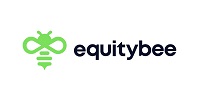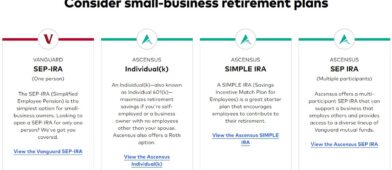If you’re an early adopter of technology or enjoy investing in tomorrow’s trends, you’ve likely explored artificial intelligence (AI) stocks. AI might be the most impactful technology of the decade, and it’s reshaping business practices in many industries.
For example, ChatGPT from OpenAI is one of this year’s most-used software programs.
The AI-powered chatbot uses generative text to produce correspondence about a multitude of topics. With ChatGPT still in early-stage development, many investors want to know how to buy OpenAI stock.
Many hope this company will be the next Amazon, Microsoft, or Netflix, and getting in early could result in a huge investment return if the company is successful. But is it possible to buy stock in OpenAI?

With Equitybee, accredited investors can gain investment access to high-growth, venture-backed startups before they IPO by funding employee stock options.
Sign up for free today to see what companies are available now and get notified when companies like OpenAI are available.
Table of Contents
What Is OpenAI?
OpenAI is a for-profit technology company that is most famous for producing the ChatGPT chatbot and Dall-E image creator. The company launched in 2015 but didn’t become a household name until 2022 when ChatGPT went viral, and millions of people began using the service for various applications.
One might say there hasn’t been this much interest in artificial intelligence since Siri was added to the iPhone in 2011. The space has come a long way since those early days – Siri is a reactive language model that retrieves data from its knowledge library, while OpenAI technology creates new and unique content (although it’s not error-free).
While the general public didn’t start using ChatGPT until the end of 2022, OpenAI has been tailoring interactive chatbots, such as:
- Instacart’s Ask Instacart
- Quizlet’s Q-Chat
- Shopify’s personalized shopping assistant
- Snapchat’s My AI
In addition to these third-party apps, the AI developer launched a premium ChatGPT Plus in February 2023. This subscription costs $20 per month and provides access during peak usage periods, faster response times, and first access to new features and updates.
As more companies adopt OpenAI’s various products, the increased revenue will appeal to investors searching for profitable companies.
/bo

Want stock picks that outperform the market?
The Motley Fool Stock Advisor has 3X’ed the S&P 500 over the last 20 years, outperforming the market 3-to-1 with 173 stock recommendations with 100% returns.
With 750,000 members, Stock Advisor is now 60% off – just $99 per year or $1.90 a week.
Try it for free for 30 days and if you’re not happy with your returns, you get a full refund.
👉 Learn more about Motley Fool Stock Advisor
(Offer expires March 31, 2024)
Can I Buy OpenAI Stock?
The answer, unfortunately, is no. OpenAI is currently a private company that hasn’t announced an initial public offering (IPO) to become a publicly-traded company. But while OpenAI doesn’t offer a pure-play investment opportunity, investors can get indirect exposure to this company. In fact, you’re already investing in OpenAI if you have S&P 500 index funds.
That’s because the tech startup has received funding from a well-known S&P 500 tech company. Other tech leaders have also donated money to OpenAI or are developing their own services to benefit from the AI revolution.
Microsoft (MSFT)
Buying Microsoft stock (Nasdaq: MSFT) is the most direct way to invest in OpenAI. The tech giant has been working with OpenAI since 2016 and recently announced a long-term partnership, along with a $10 billion investment in January 2023.
Here are some of the initiatives from the Microsoft-OpenAI collaboration:
- Azure: OpenAI’s exclusive cloud provider for research, products, and API services
- Bing: Microsoft will incorporate ChatGPT into its search engine for next-level interactive search results
- Supercomputing: Microsoft has exclusive access to the OpenAI GPT-3 language generator to expand its AI services across its many digital revenue streams
Microsoft has made massive investments in artificial intelligence, so it’s no surprise that it’s OpenAI’s biggest corporate investor. In addition to seeing a re-launched Bing, the software company will likely incorporate this technology into its Windows operating system and Office products.
Index Funds
If you don’t feel comfortable buying Microsoft stock, you can also purchase an S&P 500 or total market index fund. These funds maintain a small position in Microsoft, but you can get exposure to other companies with AI revenue streams. For increased exposure to tech companies, consider a Nasdaq 100 index fund.
Pre-IPO Investing
OpenAI is a private company, and they may decide to raise capital through late-stage startup investing platforms. Brands, including Airbnb and Robinhood, have done this in the past, although only accredited investors had access and couldn’t sell their shares until after the IPO date.
It’s also possible for non-accredited investors to invest in riskier, early-stage startups. Look for AI-related companies that provide services similar to OpenAI.
OpenAI Competitors
Until the time comes when you can buy OpenAI stock, consider these competing stocks which are aggressively investing in predictive AI services and supercomputers.
Nvidia (NVDA)
Nvidia (Nasdaq: NVDA) makes artificial intelligence hardware and software for many technology companies, whether for OpenAI, bitcoin mining, self-driving cars, or video games. If something requires a computer chip or a graphic processing unit (GPU), Nvidia most likely produces it.
That said, OpenAI is becoming less dependent on Nvidia due to its involvement with Microsoft. Still, Nvidia is a forerunner for the AI sector and any other upcoming tech-centered investment themes.
Alphabet (GOOG)
Some are going so far as to call OpenAI a “Google killer” that may topple the search engine giant from its perch. Time will tell if this prediction comes true. Meanwhile, Google’s parent company, Alphabet Inc. (Nasdaq: GOOG), is developing its own alternative to ChatGPT, called Bard.
This service has overlapping features for search suggestions, images, and computing. Like buying Microsoft stock, Alphabet also makes money from ad revenue on Google and YouTube. It’s also the holding company for the Android smartphone operating system and many other initiatives.
Amazon (AMZN)
Amazon (Nasdaq: AMZN) is the world’s largest online retailer, but also offers tablets and streaming services and operates its own fleet of local delivery vans.
The company is also a huge proponent of cloud computing services through its Amazon Web Services (AWS) platform. Many websites are accessed through AWS services, so millions of people use Amazon even if they don’t shop at their online website or buy groceries at Whole Foods.
Regarding AI, Amazon is partnering with Hugging Face (a non-traded company) to develop a direct competitor to OpenAI. This software will use AWS technology so businesses and individuals can get the information they need once this product becomes operational.
AWS also partners with Stability AI to provide AI-produced images that challenge OpenAI’s Dall-E.
Artificial Intelligence ETFs
Alternatively, you can invest in ETFs that invest in companies with exposure to artificial intelligence businesses. AI ETFs have become very popular because it’s difficult to pick winners and with an ETF, you get exposure to several companies.
Also, many of the companies we listed above have a wide variety of business units. Amazon may have exposure to artificial intelligence but you’re getting a massive cloud and ecommerce business too (not to mention groceries too in Whole Foods).
With an AI ETF, you get a more concentrated position that’s easier to integrate with your existing portfolio.
✨ Related: AI Apps to Help You Save Money
How to Invest in AI Stocks
The easiest (and cheapest) way to invest in companies leading the AI charge is with a discount brokerage account. Online brokers offer commission-free stock and ETF trades and allow you to invest from the comfort of your living room.
The best discount brokers include companies like Fidelity, Charles Schwab, Ally Invest, Webull, and Robinhood, among others. Many of these brokerages have free stock offers for signing up, as well as fractional share investing.
For example, if you sign up for Webull, you get up to 12 free stocks. With Robinhood, you get free stock (valued $5 - $200). Free shares never hurt!
FAQs
OpenAI isn’t publicly traded, so they don’t have a stock symbol yet. This will only become available if OpenAI goes public.
No, OpenAI remains a private company and only offers investment rounds to venture capital firms and tech companies. It hasn’t provided pre-IPO shares to individual investors as several startups do.
You cannot directly invest in OpenAI as it’s a private company, but individual investors can buy Microsoft stock (MSFT) which is the best way to invest indirectly. Microsoft shares are currently available through the best discount brokers with no trading commissions.
OpenAI hasn’t announced an IPO date yet. Further, it appears they will remain private indefinitely.
OpenAI has never been publicly traded, so it doesn’t have a stock price chart.
Elon Musk was an early investor and co-founder but sold his OpenAI shares in 2018.
Should You Invest in OpenAI?
Individual investors can’t buy OpenAI shares and become direct investors, although the situation may change if the company announces an IPO date or offers pre-IPO funding rounds to accredited investors.
For now, you must decide if having Microsoft stock in your portfolio can help you achieve your financial goals. A portfolio analyzer can evaluate your asset allocation to help you reach a decision.
You can purchase individual shares of MSFT in a brokerage account or an IRA. Many ETFs and mutual funds also hold shares of this tech behemoth which has injected billions of dollars into this AI startup.




Leave a Comment: